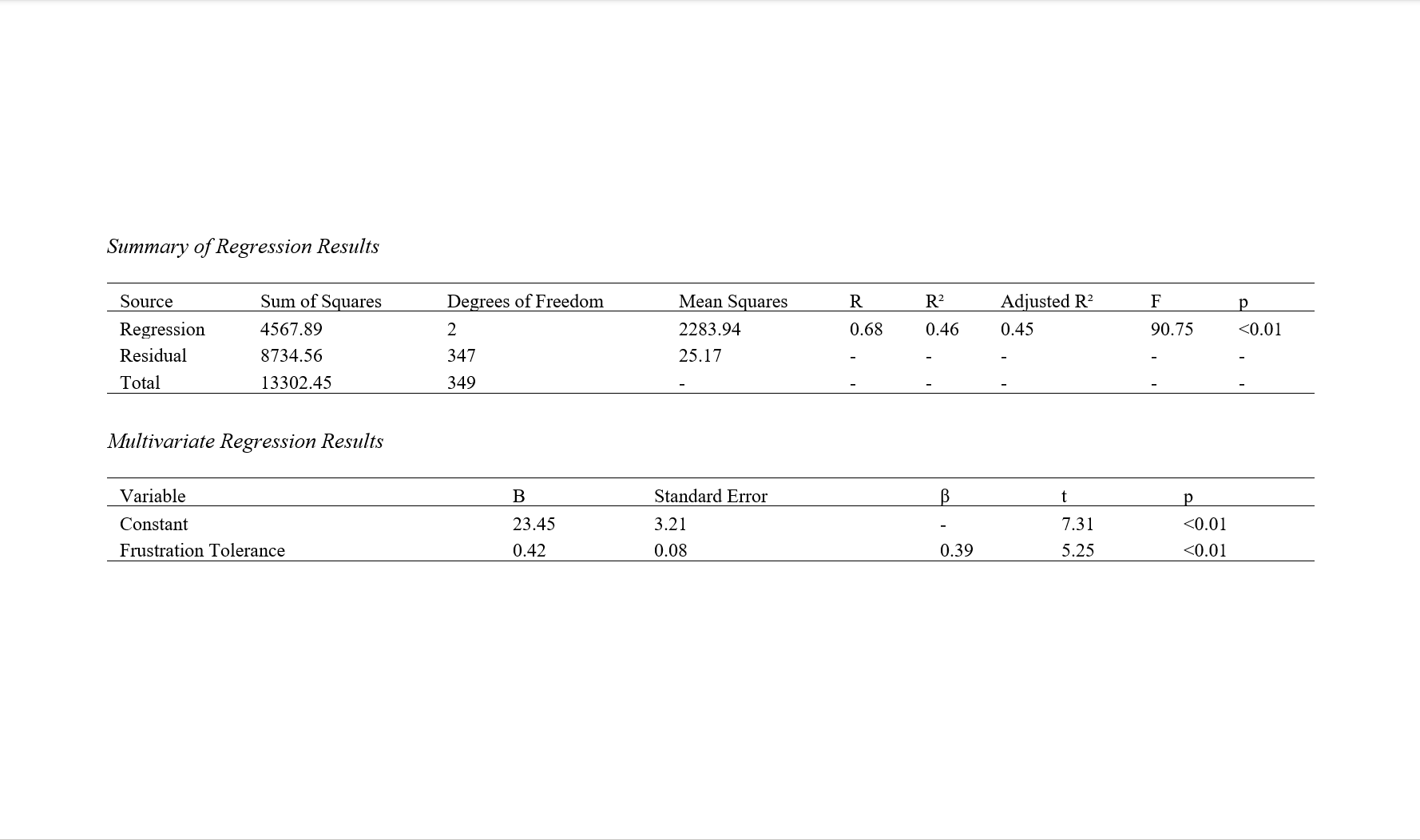Predicting Body Image Satisfaction in Adolescents with Physical Disabilities: The Role of Frustration Tolerance and Social Competence
Keywords:
body image satisfaction, frustration tolerance, social competence, adolescents, physical disabilities, psychological resilience, social adaptationAbstract
This study aimed to examine the predictive role of frustration tolerance and social competence in body image satisfaction among adolescents with physical disabilities. This research utilized a correlational descriptive design with a sample of 350 adolescents with physical disabilities, selected based on Morgan and Krejcie’s sample size determination table. Participants completed standardized self-report measures assessing body image satisfaction (MBSRQ), frustration tolerance (FDS), and social competence (SSRS). Data analysis was conducted using Pearson correlation to explore associations between variables and linear regression to determine the predictive power of frustration tolerance and social competence on body image satisfaction. All statistical analyses were performed using SPSS-27, and assumptions of normality, linearity, and multicollinearity were confirmed before conducting the regression analysis. Descriptive statistics showed that participants had a mean body image satisfaction score of 74.56 (SD = 9.87), a frustration tolerance score of 62.34 (SD = 8.23), and a social competence score of 68.21 (SD = 7.95). Correlation analysis revealed significant positive relationships between body image satisfaction and frustration tolerance (r = 0.52, p < 0.01) and body image satisfaction and social competence (r = 0.61, p < 0.01). The regression model was statistically significant (F(2, 347) = 90.75, p < 0.01, R² = 0.46), indicating that frustration tolerance (B = 0.42, β = 0.39, t = 5.25, p < 0.01) and social competence (B = 0.56, β = 0.47, t = 7.91, p < 0.01) were both significant predictors of body image satisfaction. The findings suggest that higher frustration tolerance and greater social competence are associated with increased body image satisfaction in adolescents with physical disabilities, with social competence playing a slightly stronger role. These results highlight the importance of resilience-building and social skills interventions to enhance body image satisfaction in this population.
Downloads
References
Argyrides, M., Koundourou, C., Angelidou, A., & Anastasiades, E.(2023). Body Image, Media Influences, and Situational Dysphoria in Individuals With Visible Physical Disabilities. International Journal of Psychological Research, 16(1), 78-88.https://doi.org/10.21500/20112084.6014
Ballarin, G., Gallè, F., Dinacci, L., Liberti, F., Cunti, A., & Valerio, G. (2024). Self-Perception Profile, Body Image Perception and Satisfaction in Relation to Body Mass Index: An Investigation in a Sample of Adolescents From the Campania Region, Italy. Children, 11(7), 805.https://doi.org/10.3390/children11070805
Belknap, K., Perreault, M., Lieberman, L. J., & Beach, P. (2022). Physical Activity and Functional Body Image in Youth With and Without Visual Impairments. British Journal of Visual Impairment, 41(4), 782-790.https://doi.org/10.1177/02646196221099151
Cacaj, O., & Toska, A. (2024). Body Image Satisfaction and SelfEsteem in Albanian Adolescents. Polis, 23(1), 98-120.https://doi.org/10.58944/dkfj2444
Derkintienė, S., Budreikaite, A., & Kontautienė, V. (2022). (Dis)Satisfaction With the Body Image Among 13-14-YearOld Students of Lithuanian Schools. European Journal of Contemporary Education, 11(2).https://doi.org/10.13187/ejced.2022.2.338
Digennaro, S., & Iannaccone, A. (2023). Check Your Likes but Move Your Body! How the Use of Social Media Is Influencing Pre-Teens Body and the Role of Active Lifestyles.Sustainability, 15(4), 3046.https://doi.org/10.3390/su15043046
Gomes, M. L. B., Tornquist, L., Tornquist, D., & Caputo, E. L. (2021). Body Image Is Associated With Leisure-Time Physical Activity and Sedentary Behavior in Adolescents: Data From the Brazilian National School-Based Health Survey (PeNSE 2015). Brazilian Journal of Psychiatry, 43(6), 584-589.https://doi.org/10.1590/1516-4446-2020-1515
Guilherme, J. F. N., Carla Alexandra Ramalho de Sena, M., Maria Cristina de Oliveira Salgados, N., & Jesus, S. N. d. (2024a). Factors of (Dis)satisfaction With Body Self-Image in Adolescence.https://doi.org/10.56238/sevened2024.015-017
Guilherme, J. F. N., Carla Alexandra Ramalho de Sena, M., Maria Cristina de Oliveira Salgados, N., & Jesus, S. N. d. (2024b).Physical Condition, (Dis)satisfaction With Body Self-Image and Academic Performance in Adolescence. Revista Contemporânea, 4(6), e4656.https://doi.org/10.56083/rcv4n6-064
Hameed, K. R., & Niema, N. S. (2023). The Impact of (Needham) a Constructive Model With Particular Exercises on Increasing Distance Perception and Performance Accuracy for Futsal Complicated Abilities for Players. Journal of Humanities and Social Sciences Research, 2(2).https://doi.org/10.33687/jhssr.002.02.0159
Hiba, A. J. K., & Finjan, R. A. A. (2023). The Relationship Between Job Satisfaction and Body Image Among Physical Training Teachers at the Iraqi Police College. Journal of Humanities and Social Sciences Research, 2(1).https://doi.org/10.33687/jhssr.002.01.0155
Leng, H. K., Phua, Y. X. P., & Yang, Y. (2020). Body Image, Physical Activity and Sport Involvement: A Study on Gender Differences. Physical Culture and Sport Studies and Research, 85(1), 40-49.https://doi.org/10.2478/pcssr-2020-0005
Li, P.-S., Hsieh, C. J., Shih, Y. L., Lin, Y. T., & Liu, C. Y. (2023).The Effect of Research on Life Satisfaction in Middle-Aged and Older Adults: Physical Disability and Physical Activity as a Parallel and Serial Mediation Analysis. BMC Geriatrics,23(1). https://doi.org/10.1186/s12877-023-03873-7
Martins, R. D., Otero, P., Torres, Á., & Vázquez, F. L. (2022). Quality of Life and Sexual Satisfaction in Women With Breast Cancer Undergoing a Surgical Treatment and in Their Male Partners. Journal of clinical medicine, 11(23), 6960.https://doi.org/10.3390/jcm11236960
Masotti, S., Piva, T., Zerbini, V., Raisi, A., Menegatti, E., Pagani, A., Bigoni, C., Ballarín, E., Luca, F. D., Zaccagni, L., Rinaldo, N., Toselli, S., Gualdi‐Russo, E., Argentoni, A., Veli, A., Mazzoni, G., & Mandini, S. (2024). Assessing the Relationship Between Body Image Satisfaction and Physical Activity in Italian Adolescents: A Cross-Sectional Investigation. Children, 11(7),818.https://doi.org/10.3390/children11070818
Okonishnikova, E., Bryukhin, A., Lineva, T., & Belokrylov, I.(2021a). Dysmorphophobia as a Factor That Worsens the Affective State and the Life Quality of Patients With Eating Disorders. The Final Data of the Study. European Psychiatry, 64(S1), S356-S356.https://doi.org/10.1192/j.eurpsy.2021.954
Okonishnikova, E., Bryukhin, A. E., Lineva, T., & Belokrylov, I. (2021b). Assessment of Body Dysmorphic Disorder in Patients With Anorexia Nervosa and Bulimia Nervosa. The Final Data of the Study. European Psychiatry, 64(S1), S355-S355.https://doi.org/10.1192/j.eurpsy.2021.951
Ryu, M., Seo, K., & Song, Y. (2024). Physical Leisure Activities in Adolescents With Disabilities: Data From National Survey of Disabled Persons. Healthcare, 12(2), 190.https://doi.org/10.3390/healthcare12020190
Sari, G. R., Zukhra, R. M., & Dewi, W. N. (2022). The Relationship of Body Image Satisfaction With Self-Esteem in Adolescent Women Who Experience Overweight. Jurnal Keperawatan Dan Fisioterapi (Jkf), 4(2), 108-116.https://doi.org/10.35451/jkf.v4i2.941
Selanon, P., & Chuangchai, W. (2023). Walking Activity Increases Physical Abilities and Subjective Health in People With Seven Different Types of Disabilities. Frontiers in Public Health, 11.https://doi.org/10.3389/fpubh.2023.1120926
Tschaidse, L., Quinkler, M., Hedi, L. C. v. d. G., Nordenström, A., Aude De Brac de la, P., Auer, M. K., & Reisch, N. (2022). Body Image and Quality of Life in Women With Congenital Adrenal Hyperplasia. Journal of clinical medicine, 11(15),4506.https://doi.org/10.3390/jcm11154506
Wysokińska, D., Rutkowska, E., Tomczyszyn, D., Rafałko, M., & Szepeluk, A. (2025). Leisure Time in Comparison to Life Satisfaction Level of Adults With Physical Disability. Lubelski Rocznik Pedagogiczny, 43(4), 167-187.https://doi.org/10.17951/lrp.2024.43.4.167-187
Yadav, M. (2025). Navigating the Complexities of Body Image in Young Adults and Their Self-Acceptance. Interdisciplinary Journal of Management and Social Sciences, 6(1), 160-171.https://doi.org/10.3126/ijmss.v6i1.75401
Вірна, Ж., & Лазько, А. (2024). Психологічні Особливості Перфекціоністської Детермінації Задоволеності Образом Фізичного Я Осіб Зрілого Віку. Перспективи Та Інновації Науки(10(44)). https://doi.org/10.52058/2786-4952-2024-10(44)-833-849

Downloads
Additional Files
Published
Issue
Section
License

This work is licensed under a Creative Commons Attribution-NonCommercial 4.0 International License.















